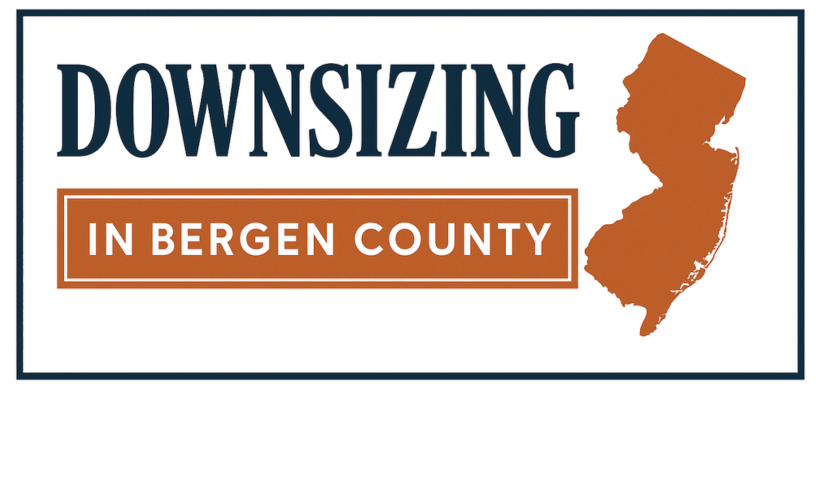
Budgeting for a Smaller Home in Bergen County: A Retiree’s Guide
When considering a smaller home in Bergen County as a retiree, it’s essential to start with a clear understanding of your financial situation. You’ll need to assess your monthly income from sources like pensions and Social Security while keeping track of your expenses, including groceries and healthcare. Establishing a budget that allocates no more than 30% of your income to housing can help guarantee you maintain a comfortable lifestyle. But, what additional costs should you anticipate as a homeowner?
Key Takeaways
Assess your total monthly income from pensions and savings to determine a sustainable housing budget for a smaller home.
Create a detailed list of monthly expenses, including utilities and healthcare, to evaluate your financial capacity for homeownership.
Aim to allocate no more than 30% of your income toward housing costs, including mortgage, property taxes, and insurance.
Factor in additional costs of homeownership such as maintenance, property taxes, and potential homeowners’ association fees to avoid surprises.
Research the real estate market in Bergen County to find affordable options that meet your space and accessibility needs.
Assessing Your Current Financial Situation

Before diving into the budgeting process for a smaller home in Bergen County, it’s essential to assess your current financial situation.
Start by gathering your income sources, including pensions, savings, and any investments. Next, list all your monthly expenses, such as utilities, groceries, and insurance.
Gather your income sources, and list your monthly expenses to gain a clear financial overview.
Don’t forget to account for any outstanding debts, like credit cards or loans. This thorough overview will help you understand your cash flow and identify where adjustments might be needed.
It’s beneficial to create a budget that outlines your financial goals, ensuring you stay on track as you shift to a smaller home. By knowing your financial landscape, you’ll be better equipped to make informed decisions that align with your lifestyle and retirement plans.
Determining Your Housing Needs
As you begin to reflect on a smaller home in Bergen County, it’s essential to clearly define your housing needs to guarantee the new space aligns with your lifestyle and future plans.
Start by considering how much space you truly require. Do you need multiple bedrooms for guests, or would a cozy one-bedroom suffice?
Next, think about accessibility; a home with fewer stairs may be beneficial as you age. Additionally, consider your preferred location: proximity to family, healthcare facilities, or recreational activities can enhance your quality of life.
Finally, assess your maintenance preferences. A smaller yard may mean less upkeep, allowing you more time to enjoy the community.
Exploring the Real Estate Market in Bergen County

When you start exploring the real estate market in Bergen County, you’ll discover a diverse array of options that cater to various lifestyles and budgets. From charming bungalows to modern condos, the choices can be overwhelming but exciting.
Each town offers unique amenities, such as parks, shopping, and community centers, enhancing your living experience. You’ll find neighborhoods with strong community ties, perfect for retirees looking to connect.
Pay attention to property values, as they can vary considerably between towns, impacting your long-term investment. Don’t forget to take into account proximity to public transport and medical facilities, which are essential for your convenience.
Take your time, visit open houses, and gather as much information as possible before making a decision.
Creating a Realistic Budget
Finding the right home in Bergen County involves more than just identifying your dream property; it also requires establishing a budget that aligns with your financial situation.
Finding your ideal home in Bergen County necessitates a careful budget that reflects your financial reality.
To create a realistic budget, consider the following steps:
Assess your income: Determine your total monthly income, including pensions, Social Security, and any savings.
List your expenses: Document all current monthly expenses, such as groceries, healthcare, and transportation, to understand your spending habits.
Set a housing budget: Aim to allocate no more than 30% of your income for housing costs; this includes mortgage payments, property taxes, and insurance.
Understanding Additional Costs of Homeownership

While you may think the purchase price of a home is the main financial consideration, understanding the additional costs of homeownership is essential for maintaining long-term financial health.
Beyond the mortgage, you’ll face property taxes, homeowners insurance, and maintenance expenses. These costs can add up quickly; for instance, property taxes in Bergen County can be a significant annual burden.
Additionally, consider utilities, which can fluctuate based on usage and seasonal changes. Don’t forget about unexpected repairs—having a budget for routine maintenance helps you avoid financial strain.
Finally, homeowners’ association fees, if applicable, can vary widely. By anticipating these expenses, you can create a more realistic budget and enjoy your retirement years without financial surprises.
Planning for Future Expenses and Savings
After you’ve grasped the additional costs of homeownership, it’s important to look ahead and consider future expenses and savings.
Planning now can help guarantee a secure financial future in your smaller Bergen County home. Here are three key areas to focus on:
Healthcare Costs: As you age, medical expenses may increase. Set aside a portion of your budget for insurance premiums, out-of-pocket costs, and potential long-term care.
Home Maintenance: Even smaller homes require upkeep. Budget for routine repairs, seasonal maintenance, and unexpected emergencies to avoid financial stress.
Lifestyle Expenses: Consider future travel, hobbies, or family visits. Allocating funds for leisure will help you enjoy retirement without financial worry.
Frequently Asked Questions
How Can I Reduce Moving Costs When Downsizing?
To reduce moving costs when downsizing, start by decluttering your belongings; selling or donating items you no longer need can save on moving expenses.
Consider renting a smaller moving truck or using a portable storage container for flexibility and cost-effectiveness. Additionally, compare quotes from moving companies to find the best deal.
You might also enlist friends or family for help, as their assistance can greatly cut down on labor costs.
What Are the Benefits of Renting Versus Buying in Retirement?
When considering renting versus buying in retirement, you’ll find several benefits to both.
Renting usually offers more flexibility, allowing you to relocate easily without the burdens of maintenance and property taxes.
On the other hand, buying can provide stability and potential equity growth. If you enjoy community involvement and want to settle long-term, purchasing might suit you better.
Ultimately, your decision should reflect your lifestyle preferences, financial goals, and future plans.
Can I Negotiate Closing Costs With the Seller?
Yes, you can negotiate closing costs with the seller.
Often, sellers are willing to cover some of these expenses to make the deal more attractive. Start by discussing your budget and the specific costs you’re concerned about.
If the seller is motivated, they might agree to lower the price or cover certain fees.
Just remember, effective communication and a cooperative approach can go a long way in achieving your desired outcome.
Are There Tax Benefits for Retirees Downsizing Their Homes?
Yes, there are tax benefits for retirees downsizing their homes.
You might qualify for exemptions or deductions based on your age and income, potentially lowering your property tax burden.
Additionally, selling your larger home may result in capital gains exclusions if you’ve lived there for at least two of the last five years.
This can help you keep more of your profit, making your shift to a smaller, more manageable space financially easier.
How Do I Find Reliable Moving Companies in Bergen County?
To find reliable moving companies in Bergen County, start by researching online reviews and ratings on platforms like Yelp or Google.
Ask friends or family for recommendations, as personal experiences often provide valuable insights.
Once you’ve narrowed down your options, request quotes from several companies and check their licenses and insurance.
Finally, don’t hesitate to ask for references to guarantee you’re choosing a trustworthy mover who’ll handle your belongings with care.
Bottom Line
To sum up, successfully budgeting for a smaller home in Bergen County as a retiree requires a clear understanding of your finances and housing needs. By carefully evaluating your income, expenses, and the real estate market, you can create a realistic budget that supports your lifestyle. Remember to account for additional costs and plan for future expenses, ensuring your financial stability. With thoughtful planning, you can enjoy your retirement in a comfortable and affordable home.


